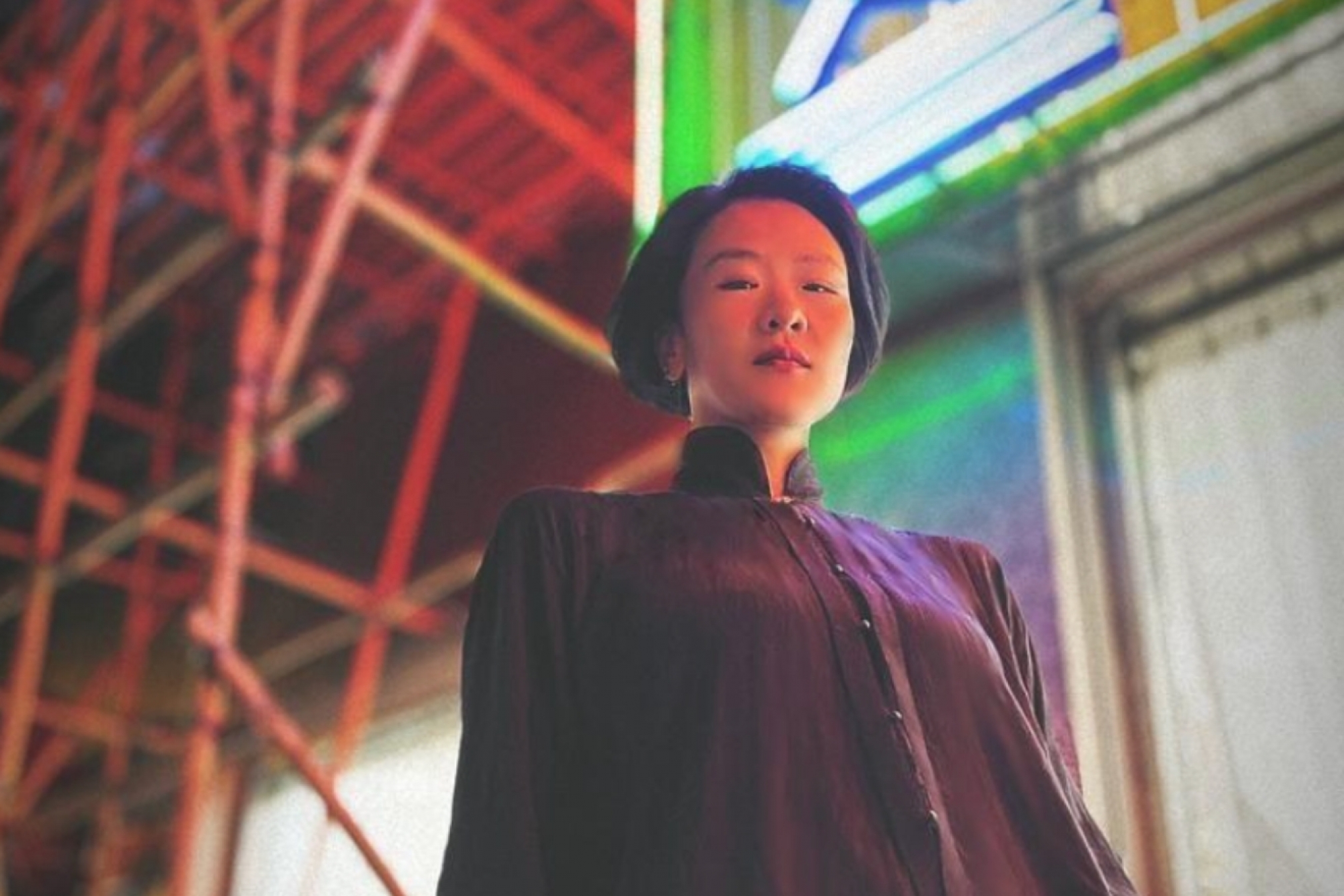 The Asia Diaries
The Asia Diaries
The Asia Diaries: Explore Chingyi's sonic journey & creative exchange across China
Read about the new sounds, fresh experiences & creative collaborations that brought her closer to the heart of China’s electronic music scene
Hong Kong-based artist Chingyi, celebrated for her ethereal, genre-fluid sound that merges ambient, deep techno, and downtempo chronicled her November 2024 China tour just for Mixmag Asia.
As part of a collaborative tour with fellow artist Teng and organised by the Y2K and Rezonate collectives, her entries offer a vivid glimpse into her first performances in mainland cities, capturing highlights that showcase both her personal journey and the unique vibrancy of China’s electronic music scene.
From the serene landscapes of Dali, to the bustling cultural hubs of Changsha and Shanghai, her entries explore the interplay between music, community, and local culture.
She also met with fellow artists along the way, including Temple Rat, who is known for integrating traditional sounds with experimental electronic music.
Conversations explored the balance between honouring cultural roots and pushing creative boundaries, and also delved into the challenges and rewards of shaping a distinctive sound in today’s electronic music scene.
Her entries also recount collaborations with music collectives that spotlight emerging talent. Discussions with their founders touched on the role of music in fostering global connections.
Through her eloquent storytelling, Chingyi reveals a tour that transcended mere performances—it became a tapestry of shared experiences, cultural exchanges, and profound musical exploration.
She offers a compelling window into the burgeoning electronic music scene in China, making it a must-read for fans and enthusiasts eager to immerse themselves in the region’s unique energy and creativity.

Day 1: November 13 The Journey begins
The journey began with an early departure. Three of us eagerly got on the train with a haze of anticipation. The air in our carriage is filled with our excitement for everything, the train ride, the changing scenery outside the window, the places and people we will imprint on, and everything that’s going to unfold. Even the camera geer checks were exciting. After much preparation, we finally started.
The hum of the high-speed train carried us northward, the scenery outside unfolded like chapters of this story we were yet to understand - concrete giving way to mountains, the horizon stretching wider with every mile.

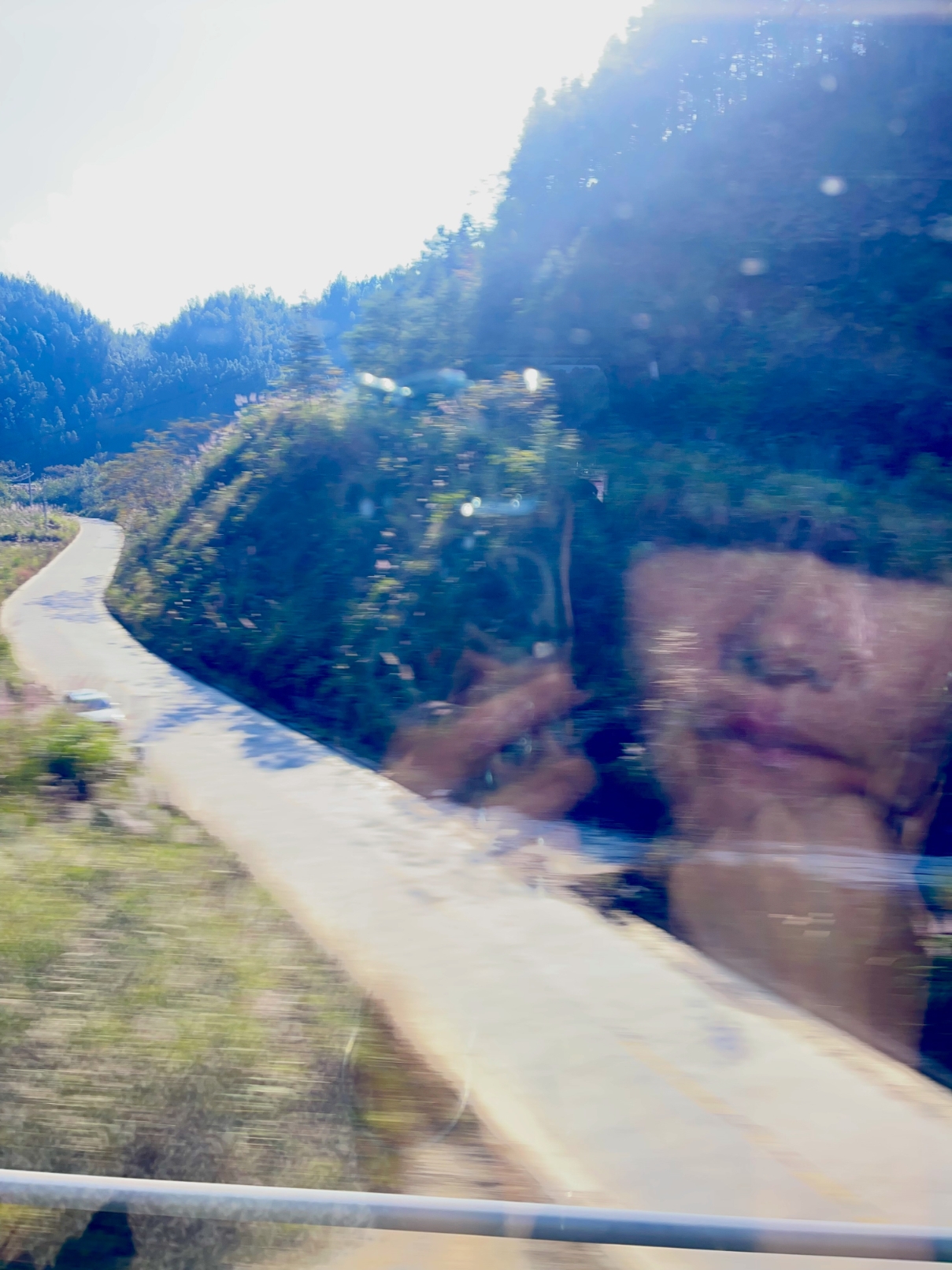
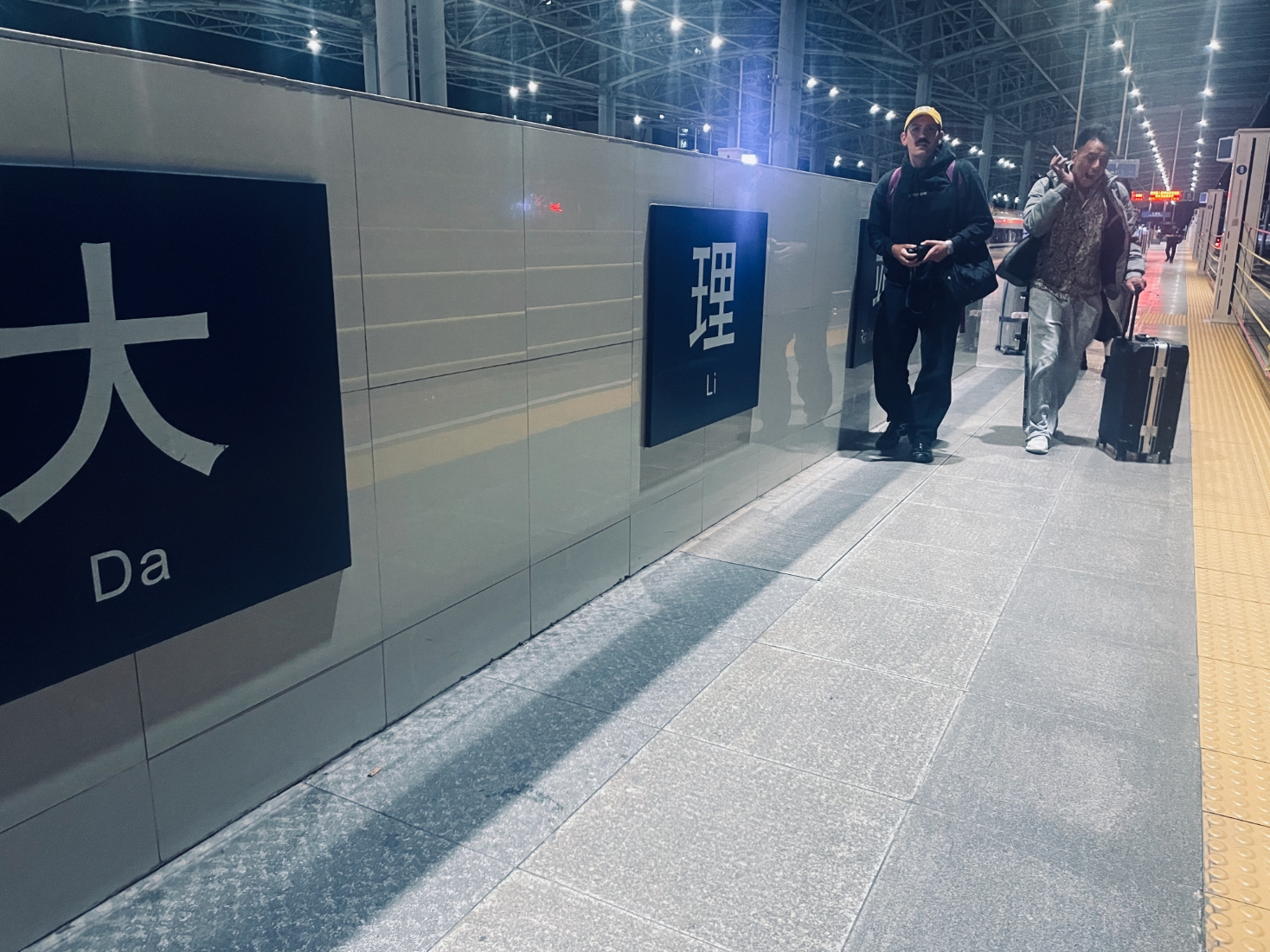
As the train smoothly glides at 350km/hr, major butterflies start in my stomach. This is my first time playing in mainland cities, and we are expecting quite a few different cities with different vibes. The extrovert in me is excited about visiting all the cities for the first time, connecting with the communities along the way, and the introvert is extremely nervous about this whole thing. We are documenting the journey, which means cameras. The introvert is certainly uneasy about this. Teng and Nathan kindly gave me a prep talk and eased my nerves. I’m grateful to be sharing this journey with the best company.
By nightfall, we arrived in Dali, walked out of the train to a brisk breeze. We get out of the station to quiet (compared to Hong Kong) streets, greeted by Ma Yang, an architect and one of the creators behind Pools. We chatted briefly about our musical inspirations as he drove us to the hotel. Though it was just a 9 hour train ride (which would have taken days from Hong Kong to Dali just 10 years ago) it was still tiring. And we call it a night.
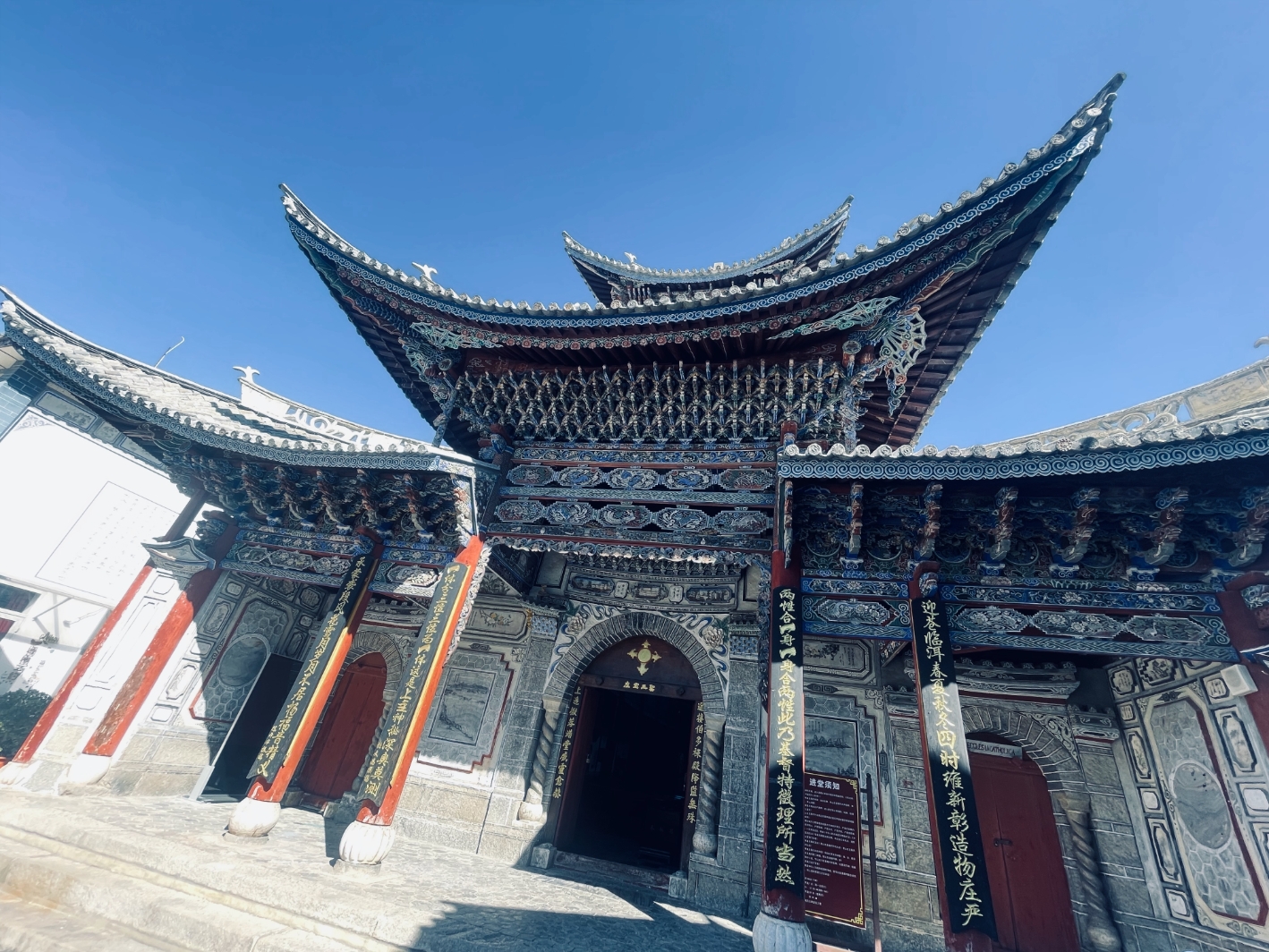
Day 2: November 14 Exploring Dali
Dali sits on a plateau 2000m above sea level, suspended between two eternal forces: Mount Cangshan to the west 4122m tall and the mirrored calm of Lake Erhai to the east. We woke up early, and headed to explore Dali Old Town.
As we walked down the stone-paved roads, we found ourselves amidst whispers of the past — of traders, pilgrims, and travellers who had once walked these streets when this was a vital artery of the Silk Road. The air was thick with history, as if I could smell the spices, the camels, and the incense. Though now swapped by the smell of roast cheese with rose jam and the Erkuai - a traditional street food consisting of sausage, sauerkraut wrapped in a roasted rice cake.



I’m always interested to see the local markets and what kind of vegetables farmers grow and forage locally. We caught the tail end of the morning market, and found some cool mushrooms and a wild edible aquatic plant called Ottelia acuminata - an aquatic plant from Erhai.
We headed to admire Lake Erhai’s beauty in the afternoon. We each rented a shared scooter and rode into the open lakeside. The moon over Erhai and the snow atop Mount Cangshan are two out of four famous natural beauties in Dali, and we saw both. Erhai’s still waters held the sky in their grasp, the moon nearly full, a reflection so perfect it blurred the line between the tangible and the ethereal. In contrast, the jagged peaks of Mount Cangshan loomed with an undeniable presence, their misty silhouettes a reminder of nature’s unyielding spirit.

Day 3: November 15 Resonance at Pool
The next morning we head westward to pay our homage to Mount Cangshan. I’m surprised to see the open-air ski lift that’s going to take us up 1000m—retro and adventurous!
Engulfed in the fresh pine forest breeze, and the soft morning bird songs, the cable car takes us flying up a slit through the pines. At the end of the cable line, we arrive at Zhong He Temple, a mystical realm. We made friends with the guardian cats, and enjoyed our existence in the vibrations of the mountain. Here, we felt a kind of quiet reverence, as though the land itself was speaking, urging us to listen before we played our own notes into the night.

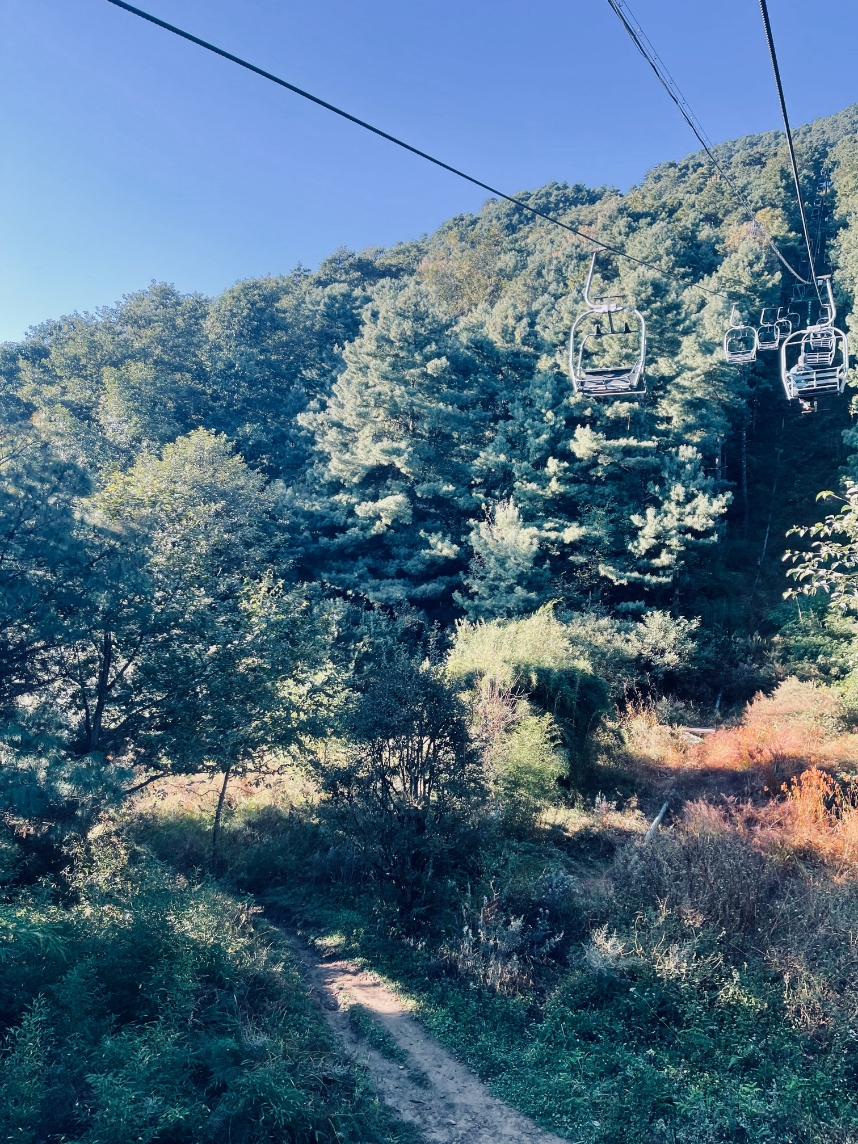

Our first performance awaited at Pools, but before the night unfolded, we spent the evening with Pools’ resident crew: Wave, Ma Yang, Noizome, and a local artist Franky. Over a dinner of spicy fish from Erhai, a delightful clash of smoky heat and freshness, we shared stories and bonded. A visit to Franky’s studio afterward revealed a treasure trove of ethnic instruments, from bansuris and didgeridoos to dramyin, morin khuur, and bendirs. Franky’s music resonated with uninhibited joy and a hopeful outlook, a perfect prelude to the night ahead.

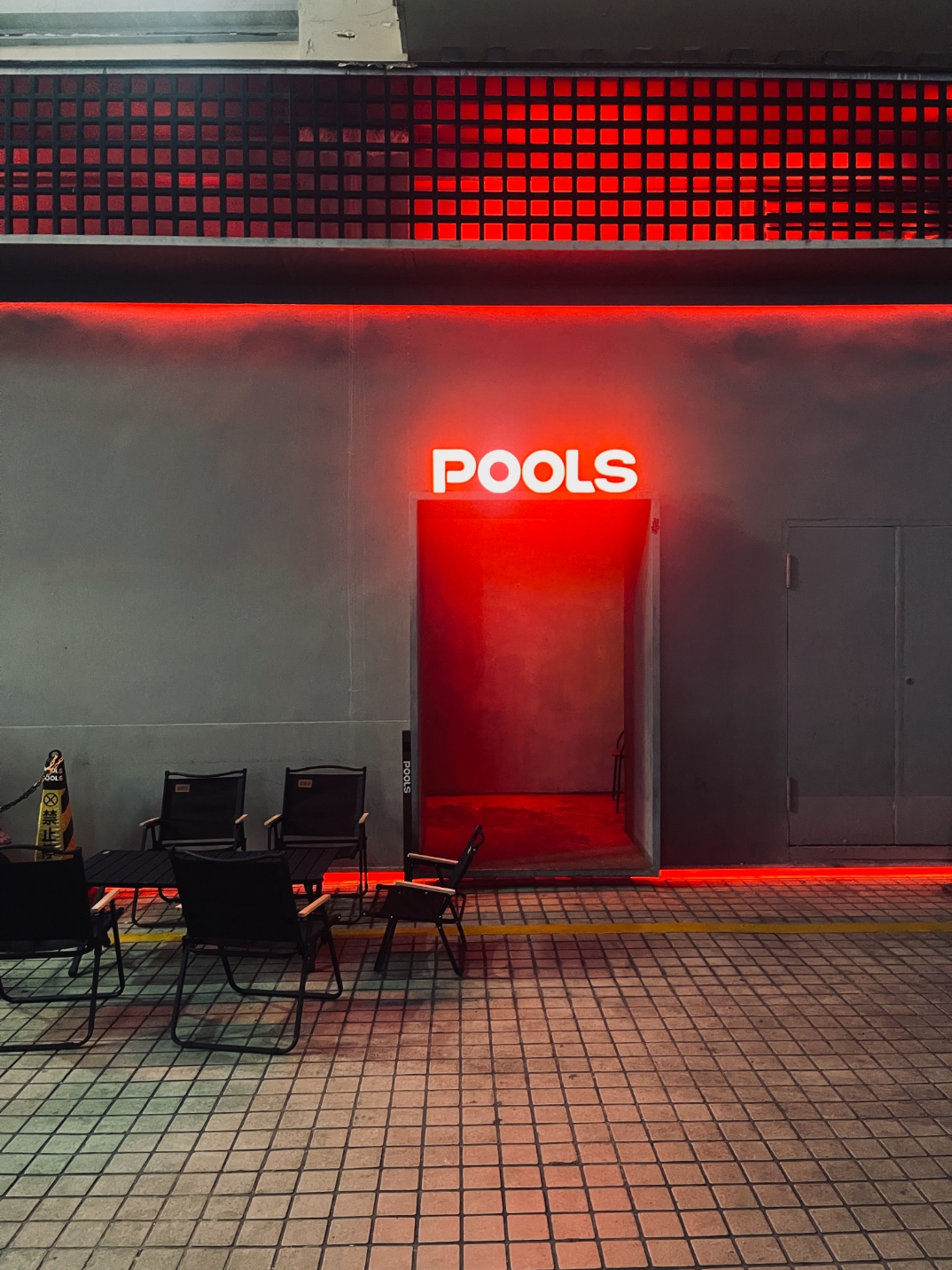
At Pools, the atmosphere was magnetic. The club’s design, a balance of brutalist concrete and the inviting warmth of tungsten light, set the stage. Its soundsystem, meticulously tuned, offered clarity and warmth, enveloping every beat with precision.
Before the music began, we had the privilege of sitting down with Wave, one of the resident DJs, to delve into his musical journey and the inspirations behind his sound. His insights spoke of a deep connection to Dali, where the music blends with the land’s timeless pulse.
Teng opened with dynamic, progressive beats, setting a lively tone that engaged the crowd. When my turn came, I let Dali’s vibe guide me, leaning into sounds that felt submerged, yet energetic and timeless. The energy of the club, the ancient hum of the land, and centuries of history resonated together with the movements of the dancers.
We wrapped up the night and said goodbye to Pools and Dali and started our journey onto Changsha at daybreak.

Day 4: November 16 A Seamless Journey to Changsha
This leg of the journey was the toughest.
Savouring the immediate memories of Dali, I fell asleep in the flying train and awoke to a bustling carriage. Train rides are my favourite moments of reflection. The carriage was alive with contained chaos, a mosaic of people from all walks of life: students, farmers, office workers, and mothers.
Outside, the scenery blurred past at 300 km/h, faster than my mind could form lasting memories.
After hours on the train, we arrived in Changsha and checked into our hotel. Refreshed, we met Bambi, the legendary force behind Riff. Her reputation precedes her in the best way possible, and it quickly became evident why she is such a respected figure in the scene.


After dinner, we made our way to Riff, Changsha’s new cultural hub. Formerly known as River, the venue underwent a transformation when it relocated to a new space and rebranded as Riff in August this year. With a chill café outside and two distinct spaces within—a livehouse on one side and the club on the other.
When we arrived, the livehouse was alive with energy, as Summerwhisper 夏语, an emo band from northern China, delivered an emotionally charged set. It was raw, unfiltered youth, a beautiful reminder of the universal power of music.
Walking into the club space felt like stepping into a minimalist haven for sound. Funktion-One speakers hung from the ceiling, and the warm, rounded sonic profile instantly made me feel at home. Bambi opened the night with a groovy, intricately detailed textures that engaged both the heart and the mind. Her music was a testament to her skill and creativity—a fitting introduction to the night’s energy.
When it was my turn, I began with 'Haima; from Rrose and Polygon’s collab EP, 'Dermatology'. Despite being advised to avoid deep, experimental sounds, I followed the instinctual pull of the night (Actually, Bambi’s edgy sounds encouraged me to dive deep).
The Riff crowd embraced the journey, their expressive movements a reflection of the sound waves connecting us all. For 1.5 hours, time dissolved, and the abyss welcomed us, a shared exploration through sound. My heart’s fully charged.

Day 5: November 17 Exploring Changsha’s Music Community
The next day, we reconnected with Bambi for a deeper dive into Riff’s ethos. Unwilling to accept the label of an “underground” club, she emphasised its simplicity: “It’s a vibe—if you like it, you stay. If you don’t, you leave.”
Her refusal to box Riff into overused definitions was refreshing and resonated deeply.
Later, she took us to Changsha Community Radio (CCR), situated in a charming old-lane house area reminiscent of Shanghai’s historical lanes. The rock-paved paths and blue-grey brick walls whispered stories of bygone eras. I found two records I really loved, Music of India and Smetana’s Vltava - Die Moldau, the latter I listened to repeatedly when I was little, and loved the poetic depiction of the river flow, and I found the record on second flip. It’s meant to be.


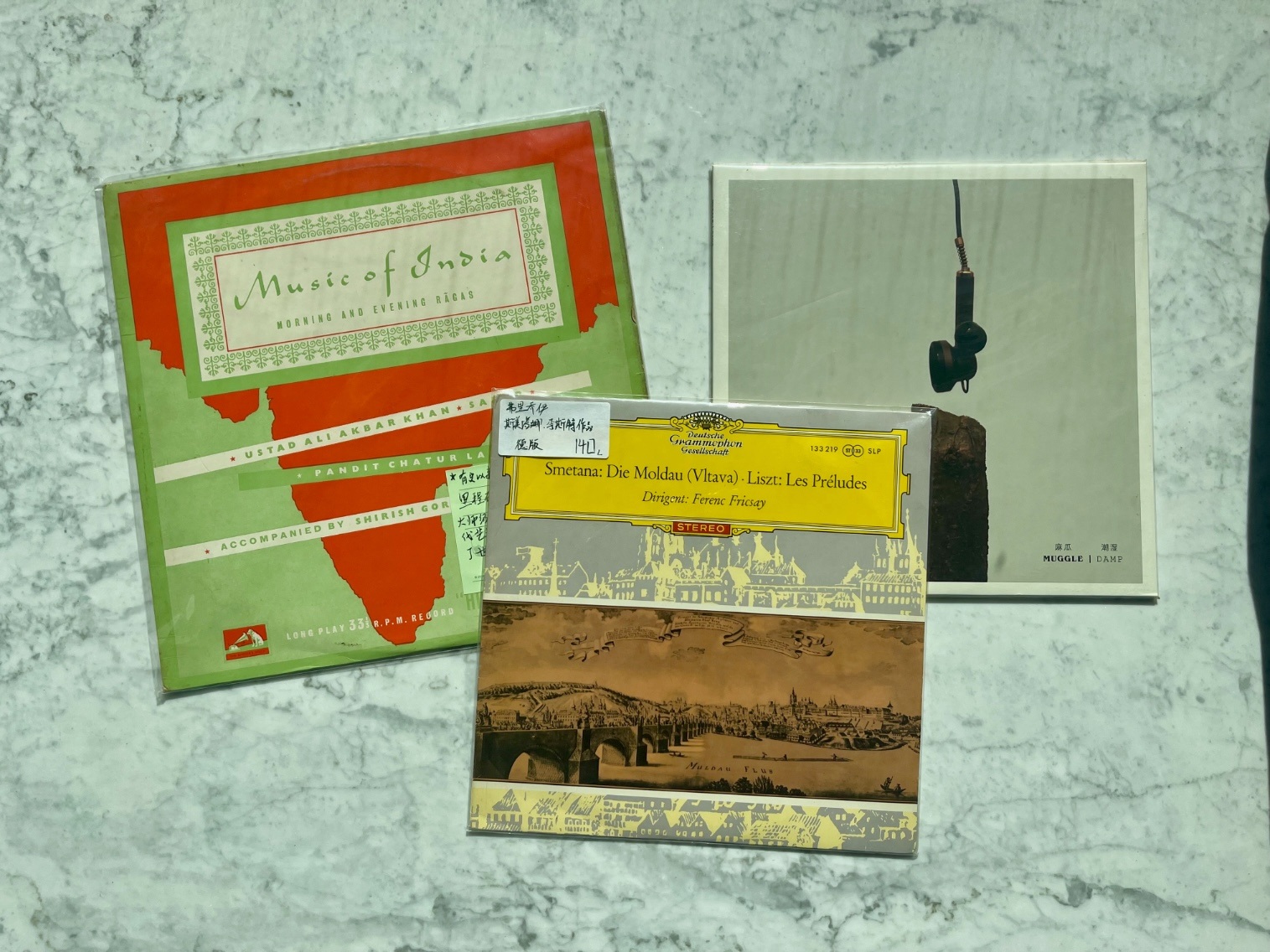

Across from FoLiDeng Records—a cleverly named corner shop whose Chinese name means “the light within Buddha” and echoes “freedom” phonetically—we stepped into CCR.
CCR’s cosy wooden interior, adorned with eclectic objects, exuded warmth and creativity. Min9, a local DJ, producer, and one of CCR’s key figures, shared its purpose: to connect music lovers and provide a space for DJs to share their craft. Still in its early stages, CCR aspires to host workshops and cultivate a community where creativity thrives.

Day 6: November 18 Arrival in Shanghai
The next morning, we went to climb the YueLu Mountain before our train ride to Shanghai. On the train, we reminisced by watching the recording from CCR together.
The journey from Changsha to Shanghai began on Monday morning. The train whisked us past a shifting mosaic of landscapes, arriving under the glittering expanse of Shanghai’s unmistakable skyline by nightfall.


For the first time on this tour, our schedule eased. With no heavy commitments until later in the week, we found ourselves “free range” for both Tuesday and Wednesday—a rare window to explore the city at our own pace. Knowing this made the night’s rest all the more restorative. Shanghai waited patiently outside, ready to reveal its layered stories when we were ready to listen.

Day 7: November 19 A Taste of Shanghai
Tuesday morning began with a pilgrimage to one of Shanghai’s culinary icons - LaiLai XiaoLongBao. It was crab season, and the anticipation in the air mirrored the patient line we joined. The wait was worth every second as we finally savoured the delicate, steaming soup dumplings, their flavours a perfect harmony of briny sweetness and umami depth.
After breakfast, we rented bikes and set out to explore the French Concession, weaving through streets shaded by towering sycamore trees. The dappled sunlight filtering through the branches created an atmosphere that felt quintessentially, almost romantically, Shanghai.
On two wheels, time seemed to stretch, each turn uncovering the city’s charm at an unhurried pace.


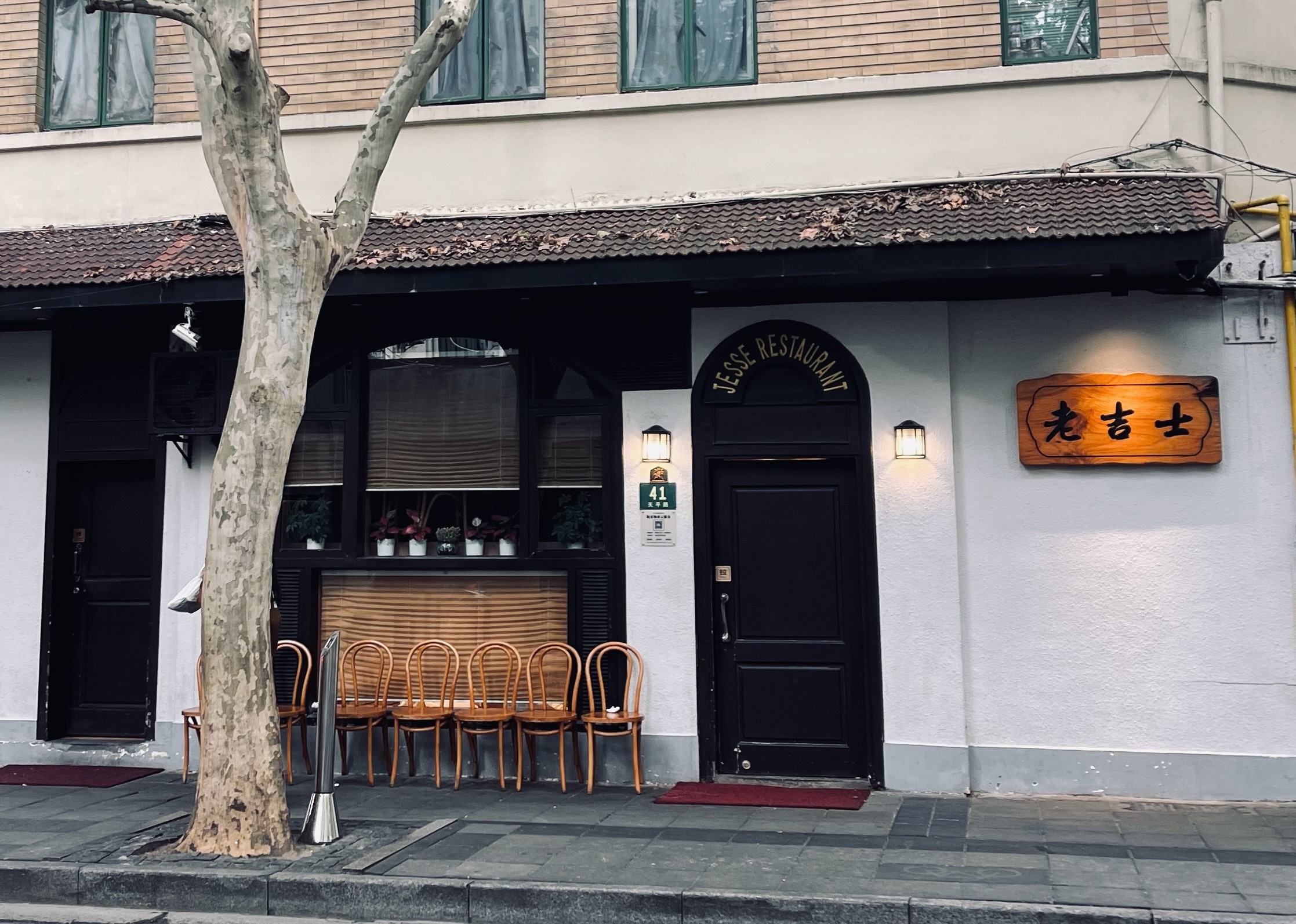
By nightfall, the city’s allure shifted to its vibrant dining culture. We met friends for dinner at the renowned Old Jesse, a restaurant celebrated for its authentic Shanghainese cuisine. Dishes like the rich red-braised pork and delicate stir-fried river shrimp captured the essence of the region’s flavors—layered, nuanced, and deeply satisfying. Each bite felt like an ode to tradition, reminding us why Shanghai’s culinary reputation is unmatched.
Content and pleasantly full, we called it an early night, knowing Shanghai’s stories would continue to unfold in the days ahead.
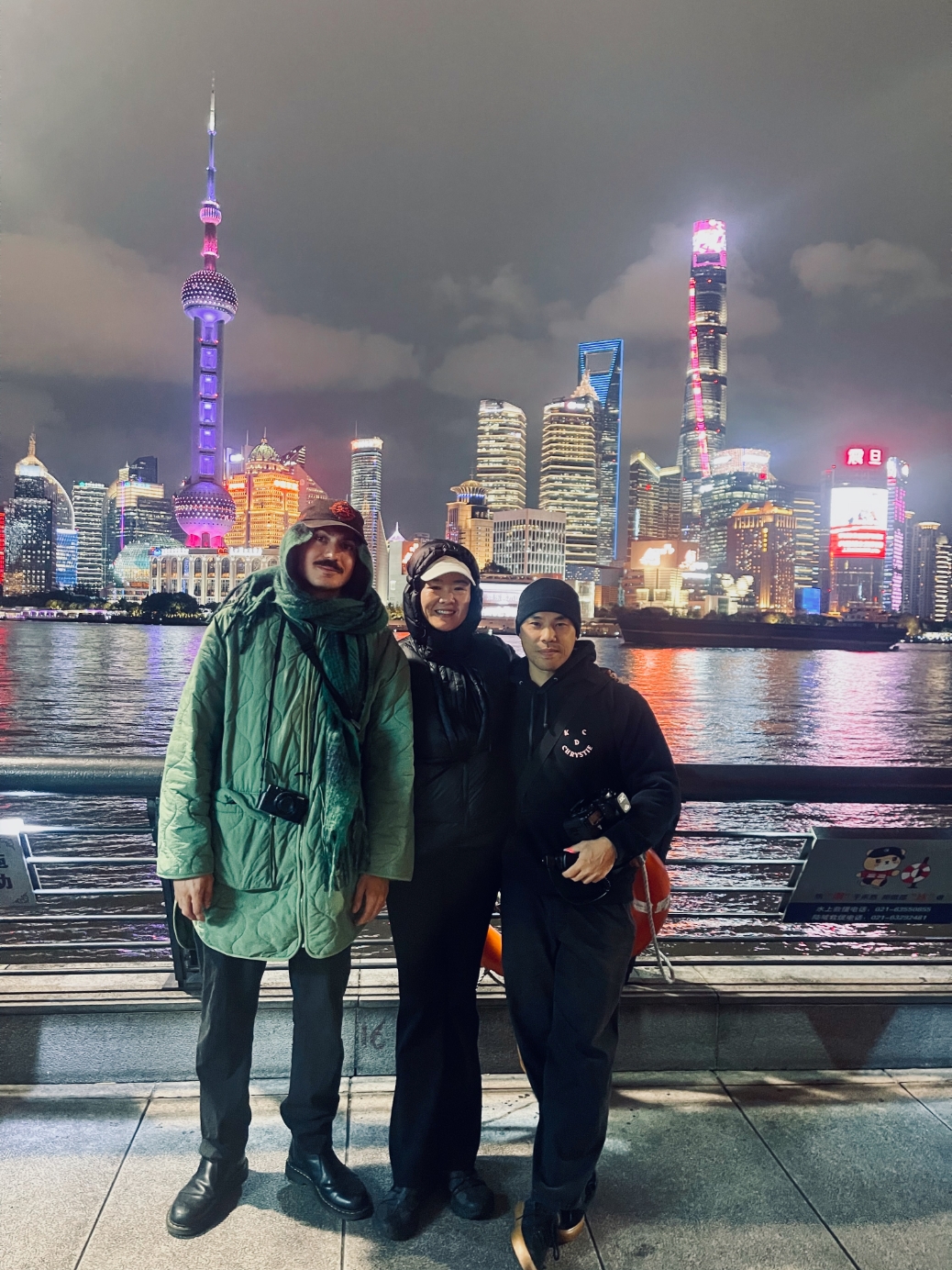
Day 8: November 20 Work, Wander, and XiaoLongBao Encore
Wednesday unfolded at a balanced rhythm. We each had some time to ourselves during the day, free from any rush to catch a train, and found our own spaces amidst Shanghai’s steady hum.
I caught up with Temple Rat (May), a Berlin-based electronic music producer originally from Sichuan, now on her Asia tour. I had the honour to host her at Mihn a few weeks ago. Her work blends traditional Chinese music with electronic beats, reflecting a deep connection to her cultural heritage. Operating primarily within the underground scenes in Asia and Europe, no one has more authority to discuss about the scenes in China, Hong Kong in comparison to Europe.
She has seen a shift in mainland China’s music culture. A younger generation is more open to diverse influences, partly due to Hong Kong’s cultural impact in the 1990s, but Hong Kong itself now faces challenges due to over-commercialisation that stifles genuine cultural exchange.
May emphasises the need to bridge these gaps, advocating for sincere dialogue and collaboration between different musical communities. She notes, “If we can push for more music forums, hold workshops, or create more music-focused communities, it would open new doors for interaction between the two regions.” This vision is integral to her approach, aiming to foster deeper connections and overcome historical barriers.
Her vision includes the ‘Shan Hai’ Art Week as a platform that brings together independent filmmakers, musicians, designers, and creative professionals from mainland China, as well as Hong Kong and Taiwan. It underscores her commitment to creating a more interconnected music community.
I’m extremely inspired after our chat and resonates with all her visions going forward. Hopefully, we can work together on these shared visions to bridge the gap in the future. May shared a lot with me and I wish I could write it all out here, but maybe we can dive deeper on a separate occasion.


As the afternoon softened into evening, we came together to visit the Bund, a breathtaking stretch where the city’s past and present collide. The iconic skyline across the river shimmered, reflecting both its storied history and futuristic ambitions. From there, we strolled through the bustling Nanjing Road, its energy palpable but overwhelmingly packed with tourists.
Craving something quieter and more indulgent, we detoured for another round of XiaoLongBao -- a decision as satisfying as the first. The dumplings felt like a comforting encore, wrapping up the day with warmth and Shanghai’s distinct charm.
By the time the evening ended, we felt nourished, not just by the food but by the vibrant interplay of flavours, sights, and moments the city offered.

Day 9: November 21 BYYB Radio Set and Conversations with the Founders
On Thursday, we headed to BYYB, a charming roadside station situated within the vibrant TX Mall on Huaihai Road. BYYB started just a year ago in October 2023 and has quickly become a hit in Shanghai’s music scene, along with other music radio collectives such as Baihui and Shanghai community radio.
The project focuses on integrating music into various aspects of life while emphasising local authenticity and sustainability. BYYB, short for 表演一波 (Biao Yan Yi Bo), aims to connect people locally and globally through shared musical experiences, expanded through social media and international platforms like YouTube.
I first played at BYYB earlier in the year and was deeply impressed by their organisation and professionalism down to every detail. We spoke with the founders, YB and Jinger. YB handles booking and music curation, while Jinger focuses on community engagement, social media, and brand strategy. Their vision is to grow the commercial viability of the radio to ensure its sustainability and to connect people across borders. They aim to incorporate more of the local Shanghai culture and authenticity into the radio presentation and plan to expand the radio project to other cities, including a planned radio show in Guangzhou at the end of the month. BYYB’s strategy also includes hosting events in different countries to connect more people domestically and globally.
It’s inspiring to hear their strategy and plans for the future. I’m looking forward to following their new developments, particularly in collaborations with both old and new Shanghai communities/collectives, as well as across China and the world.
Since I started just before sundown, I chose to start with a more downtempo vibe with Vice City’s 'Thawing Permafrost', and then taking everything down a journey to Armenia, wrapped in the sound of Duduk flute.
In the middle of course, we bathe in Faye Wong’s haunting and ethereal voice, to explore the fragility of faith, the consequences of giving in to temptation and the complexities of human nature. Down this path, I shared a few more deeper tracks from Shjva, PLAN, Foreign Material and K.O.P.32—the sets are on Y2K’s YouTube channel if you are interested to have a listen!

Day 10: November 22 Conversations with Artists in Shanghai
On Friday, we met the artists we were set to play with that night for lunch: Xiaolaba, a local DJ from Guangxi now based in Shanghai, and Helena (DJ Daybreak), a DJ from New York City. Helena shared her experiences of playing in Shanghai and Beijing, noting the contrasts between the underground music scenes in China and the US.
She highlighted that the Chinese scene is still in its infancy, lacking the freedom of expression and sense of community found in places like New York. Despite these challenges, Helena appreciates the opportunity to connect with local artists and audiences in China, and hopes to bring international influences back into the local scene.
We also spoke with Xiaolaba, who we invited to play at Mihn for Y2K at the beginning of November. While he was initially hesitant to make direct comparisons between Hong Kong and China’s music scenes due to his limited experience, Xiaolaba shared his perspective on the differences between cities.
In Shanghai, he feels a greater freedom to express himself with a more flexible approach to DJing, without the strict genre expectations he might face in other cities like Chengdu. This flexibility contrasts with the more regulated scene in Hong Kong, where there’s a clearer expectation to adhere to specific musical styles or energies in sets.
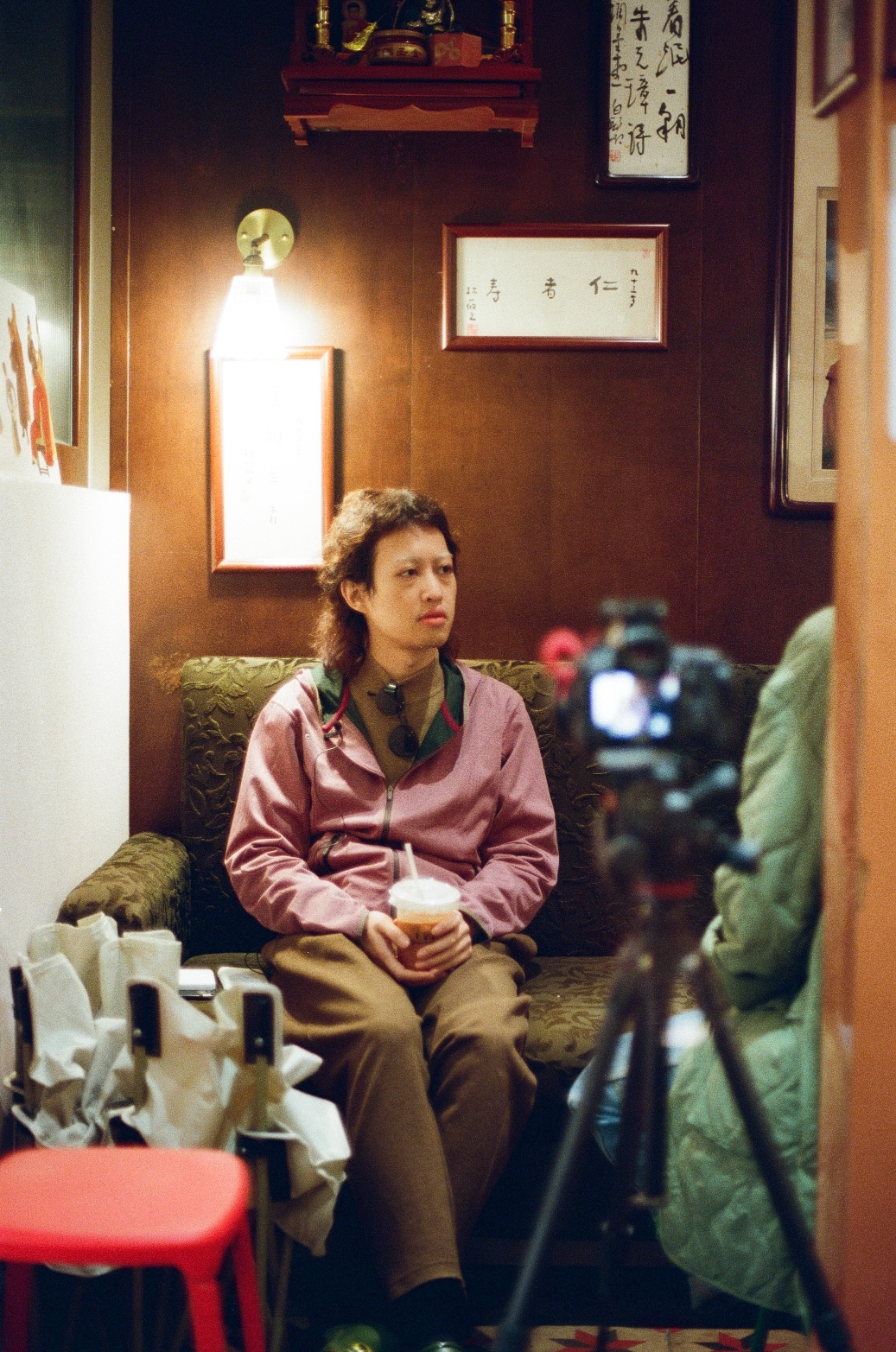
The conversations provided valuable insights into the dynamics shaping the underground music culture in China, balancing local authenticity with global influences. Both artists’ reflections underscore the complexities and potential for growth in China’s music community.
At nightfall, we headed to dinner with Ricardo, a DJ and promoter for System, and discussed the underground music scenes in China. Both Hong Kong and Shanghai share a love for a variety of electronic music, yet Shanghai offers a more experimental vibe and unique event locations. However, Shanghai faces challenges such as restrictive regulations that can lead to last-minute changes which is quite a common theme we see here, and economic factors that affect artist bookings and venue choices.
The scene is evolving rapidly, but these constraints impact the diversity and growth of the underground music community. Despite these challenges, Ricardo remains optimistic about the future, seeing potential for greater collaboration between Hong Kong and the mainland cities.


After dinner, we head to System for soundcheck. As the mega club in China, it revealed its allure. The space is huge with a stripped-back grungy background, with three independent spaces; S-stage (where we played), Dan-lu and Mimi.
Dan-lu (furnace) is on the first floor and there is a chimney behind the DJ booth with an incredible motorised light installation in the middle which blurs the boundaries of dimensions. MiMi resembles an old Shanghai public bathhouse, with a tiled pool in the middle. I can also hear the jazzy vocals from the old Shanghai discotecas.
My mind's eye sees the night panning out anticipatorily where people flow between the three stages on a beat of its own. The sound is incredibly powerful!
The first DJ opened smoothly. As the guests arrive, they feel welcomed and slowly the tempo picks up and dancers start to move. When I started to play, the energy was already tense and building. Knowing the high-energy System generally required, I prepared my favourite techno trance tracks, starting with a 90s classic Goa trance by Jaïa & Doops.
As the night continued, the crowd at System remained electrified. The multiple spaces allowed for a dynamic flow between sets, with each DJ offering their own unique take on the night. The crowd was engaged and responsive, and the energy in the room was palpable. It was a great reminder of the power of live music and its ability to bring people together.
The night wrapped up with high spirits, as we shared experiences and exchanged stories with local and international artists alike. It was an unforgettable conclusion to our time in Shanghai, and I’m looking forward to seeing where the local scene goes from here.
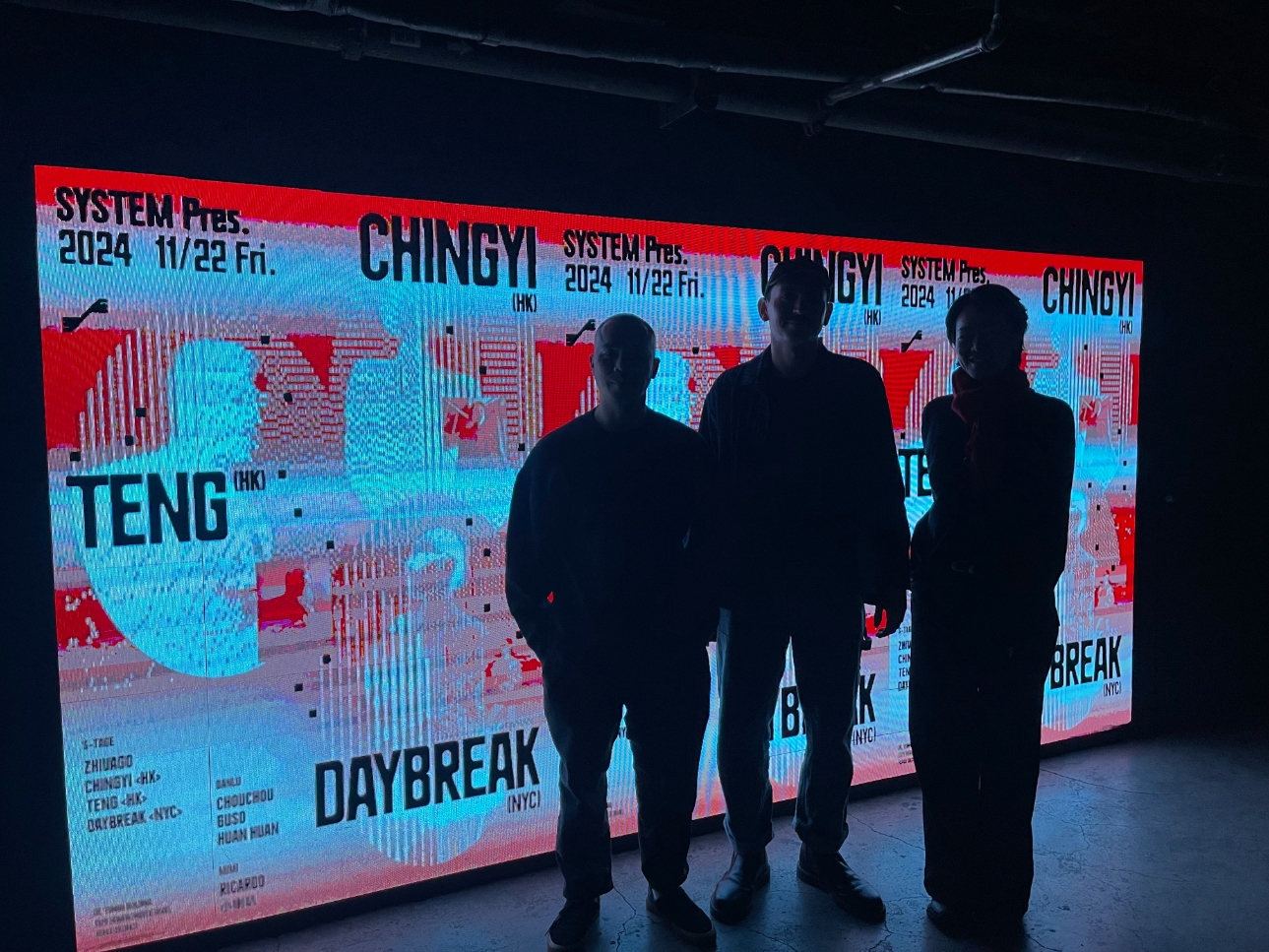
Day 11: November 23 Arrival in Beijing
Saturday, we head out to the train station for the 11 am train. This train ride will be easy peasy, only 4,5 hours and we will arrive in Beijing, the capital city. The last time I was in Beijing was 10 years ago and I’m looking forward to rediscovering the city. The scenery was flashing by fast, as the train moved at lightning speed I tried to catch the beautiful emerald farmlands outside.
By the time we arrive, the sun is setting already. We are scheduled to play Dada on Saturday night, and then Solo on sunday. The anticipation is rising again as we are finally approaching the end of our journey.



The drive to the hotel is almost an hour from the train station. Staring out the window, I was greeted by the sight of Beijing’s iconic skyline blending modernity with tradition. Towering skyscrapers stood side by side with traditional curved rooflines, each whispering stories of the city’s layered history. A wave of inexplicable excitement washed over me. Beijing’s energy felt palpable, and though it had been a decade since my last visit, the city seemed both familiar and intriguingly new.
As we reached the hotel, a warm golden glow from the setting sun lit up the city. After checking in, we had just enough time to freshen up before heading out to Dada. The sense of anticipation was rising again, this was the penultimate stop of our journey, and the culmination of weeks of travel and connection.
Before heading to DADA, we met up with Michael for dinner. He took us to a North Korean restaurant, something I never imagined trying in my life. The experience felt surreal, like stepping into a parallel culinary universe where I have been, yet foreign. The decor was modest but imbued with communist chic, and the staff moved with an eerie precision that added to the atmosphere. The food, though unfamiliar, was surprisingly comforting—grilled meat, fermented vegetables, and steamed rice cake that felt like a distant cousin to Korean cuisine.
Michael himself is a character. Intimidating at first glance, he soon revealed himself to be a free spirit who couldn’t care less about pretensions. His stories ranged from obscure music scene anecdotes to philosophical musings about life in Beijing. He carried a laid-back energy that put us all at ease, even as the unusual setting and cuisine kept us slightly on edge.


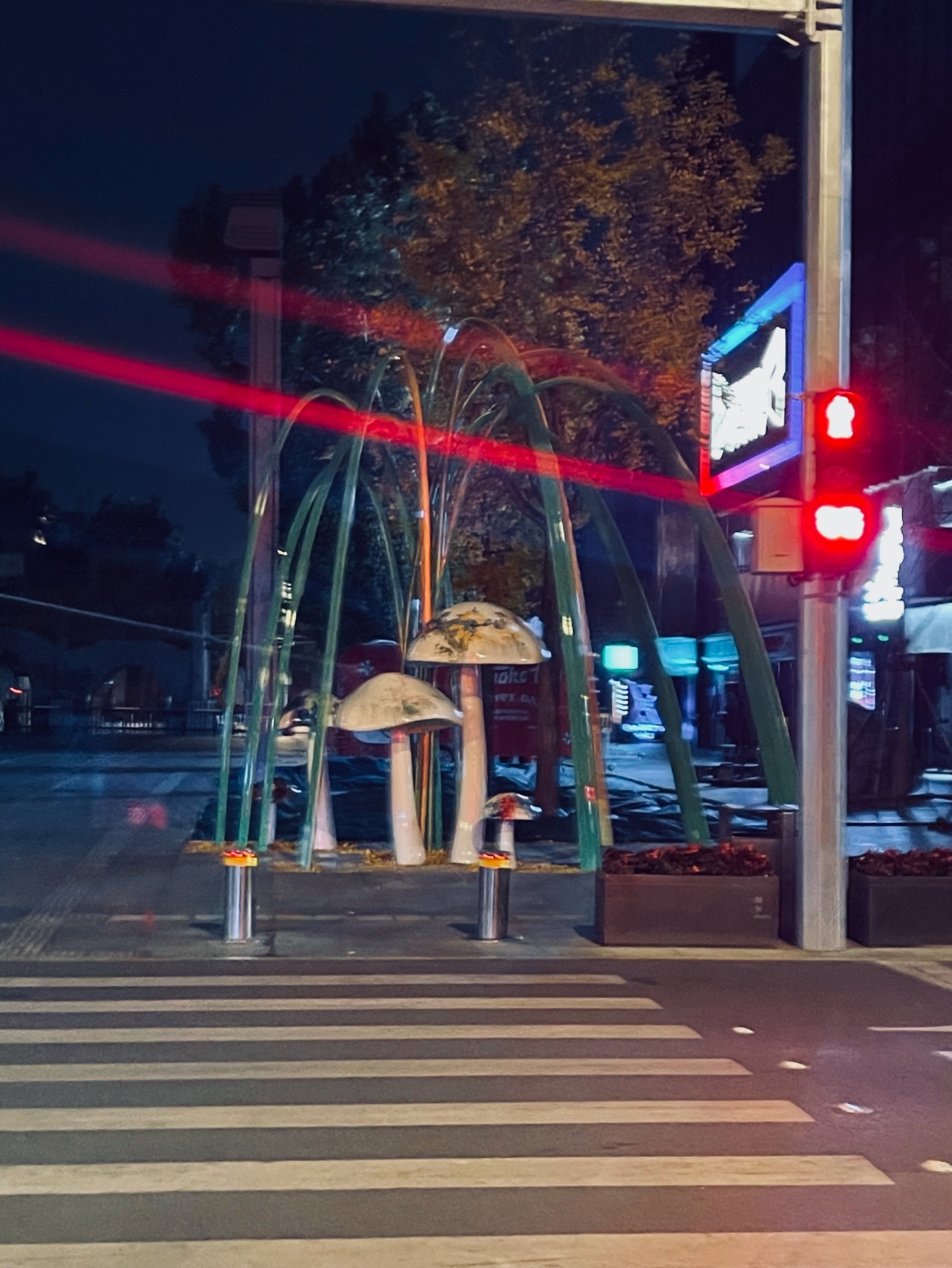
By the time we left the restaurant, the initial tension had melted into laughter and lively conversation. Michael’s easygoing attitude set the tone for the rest of the night, giving us a renewed sense of energy as we headed toward DADA, ready to dive into Beijing’s vibrant nightlife.
Stepping into Dada felt like entering an electrified maze. The club’s intimate layout, dimly lit with neon accents, created an underground vibe that mirrored its reputation as a cornerstone of Beijing’s multi-genre music scene. The crowd was alive, buzzing with expectation, their energy infectious.
I kicked off the night with a slower downtempo which is round and welcoming, seamlessly pushing up the tempo and gathering tension. And Teng took over and pushed the energies further. While Teng was playing, Michael took me and Nathan to check out the opening party for ByebyeDisco, which is another club within 10 minutes walking distance.
We walked into a grand hall with a live act on. Two vocals and the other on samplers/synths. One of the tracks was very interesting, it mentioned 亚逼的时代 (Yàbī de shídài) which I didn’t fully understand. And someone explained this to me.
“The term 亚逼的时代 (Yàbī de shídài) literally translates to ‘the era of niche idiots’ or ‘the age of niche fools’. In English, it can be interpreted as ‘the era of niche culture’ or ‘the age of niche identities’. It reflects a time when niche cultures, subcultures, or communities embraced a certain self-awareness and irony, often with a mix of self-deprecation and pride in being unconventional or different. This era is characterised by a shift towards celebrating individuality, embracing imperfections, and challenging mainstream norms.” Wow, this is the best thing I learned on this trip.
When the night finally wound down, we lingered outside the club, soaking in the crisp Beijing night air. Conversations flowed easily, blending Mandarin, Cantonese, and English—a testament to the diversity of the crowd. It was a fitting reminder of why I started this journey: to bridge communities through music. However, to be honest, bridging these communities is a much bigger challenge than I initially thought; rather than bridging communities, I learned that the communities in China are so vibrant, with so much we could learn from.

Day 12: November 24 Solo Sundays
We decided to connect with the history of the city today and hike the Jingshan Mountain and Beihai Park where we soaked in the ancient culture.
We even got to have some original Beijing style JianBing (Chinese savoury crepe) for lunch. At sundown, we geared up and headed towards SOLO, a half an hour's drive.

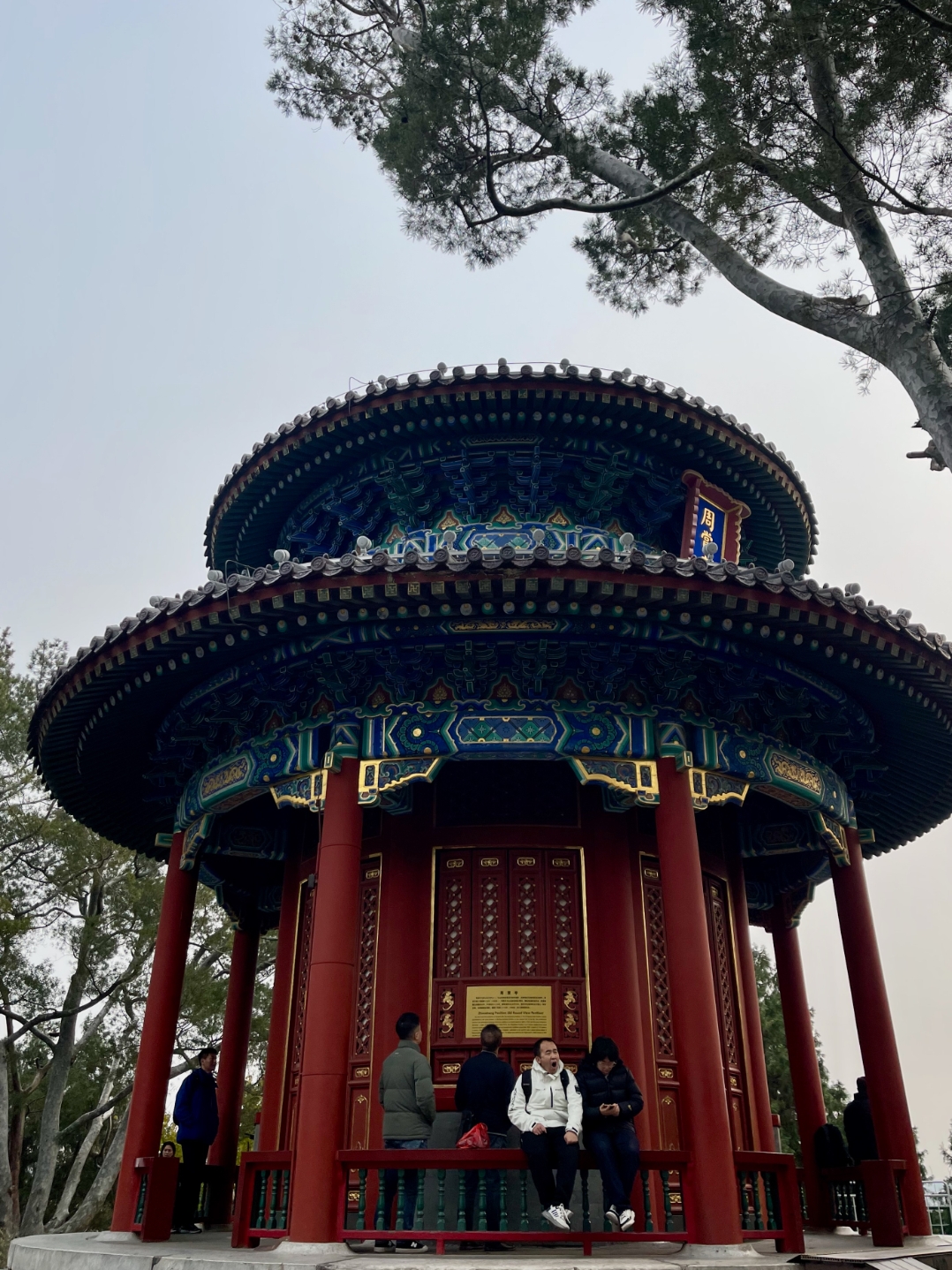
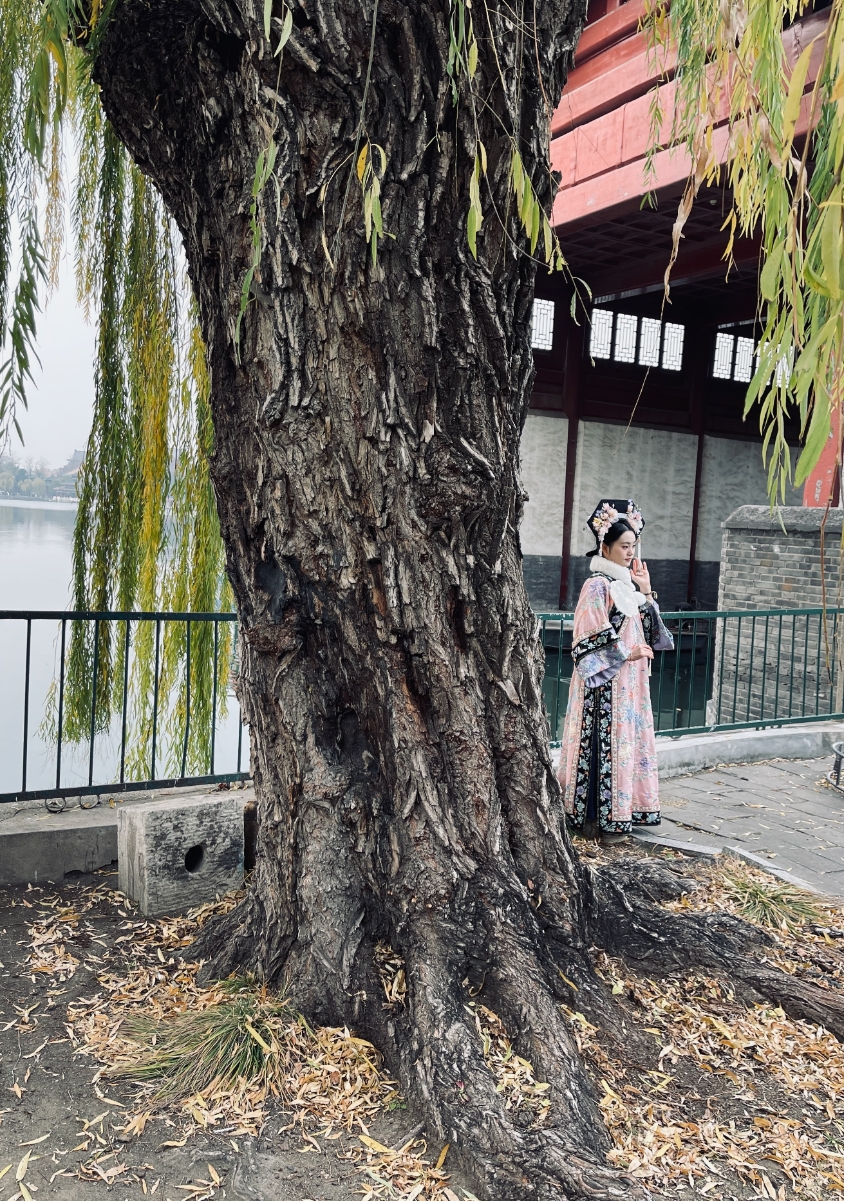
We found a great restaurant next door and had an incredible Mongolian hotpot experience. I cannot accept being in Beijing and not eating a hotpot meal.
Having the warm mutton in my stomach, we are ready to start this interesting Sunday night gig. I was especially looking forward to this one, since I can play ambient. And I loved the event name Rug and the poster design. On their intro, the event series’s slogan is "DJ和舞者,心无旁骛. 呈现,体验,认知,你自己" ("DJ, people, nothing else. Present, Experience, Recognise Yourself"). I feel a deep resonation to these expressions.

Before we started, we did a few interviews.
First we interviewed Jackie and Damon. Jackie is involved with ByebyeDisco and told us a bit about the history of BBD. It used to be a party label, which hosted a lot of international house and disco DJs and produced many shows since 2008. And last year they finally opened a club and invested a lot in the interior and soundsystem. However, the market in Beijing is too saturated, and BBD had to close down. But the day before, they opened on a popup base again at the box, where we attended the opening party.
Jackie and Damon chatted with us about many topics, from where their musical influence comes from to their current involvement in managing bands. They shared their frustration with the current state of Chinese social media. It’s just much harder to promote any event now compared to even 5 years ago because there are too many channels for PR and marketing, which is a recurring topic many artists/promoters share.
Our next interview was with Weng Weng, a pivotal figure in the mainland’s underground music scene. Known to many Chinese electronic music fans, he was the founder of the iconic club 灯笼 (Lantern) and is now one of the partners behind SOLO. Unlike Lantern, SOLO is designed to be an intimate, studio-style space where listeners and artists can connect and share their passion for music.
Weng Weng’s journey in the scene began in 1997 when he started DJing, making him a witness to the evolution of China’s underground music culture. Back then, the concept of underground clubs didn’t exist. House and disco dominated the mainstream, and there were no local techno DJs.
The first techno influences came from DJs invited from the Philippines or Hong Kong, while the rave scene was introduced by European exchange students studying in Beijing. They organised DIY raves at a bar called Keep in Touch, which became the epicentre of the scene, peaking around the year 2000. Weng Weng recalls that people seemed more open during those times, with foreigners and local Chinese partying together, a dynamic that feels less common today.
Inspired by global techno legends like Jeff Mills, Richie Hawtin, and Laurent Garnier, Weng Weng has seen China’s underground culture grow and flourish over the past two decades. However, he approaches this rapid development with caution. In his view, the fast pace of change has brought challenges.
Many club owners in China are now struggling, caught between fleeting trends and the overwhelming influence of social media on people’s tastes and behaviour. While the country’s economic development has been swift and impressive, he feels the cultural growth has lagged behind, with government policies often failing to nurture creative industries. Additionally, intense competition among clubs and a lack of communication between promoters, club owners, and DJs have further complicated the scene.
SOLO, as Weng Weng explains, was born to fill some of these gaps. It aspires to be more than just a space for entertainment. By prioritising high-quality sound, offering a broader range of music, and fostering community connections, SOLO aims to create a meaningful platform where culture and music can truly thrive.
His words were inspiring, and I couldn’t wait to share some sounds of my own.
The setup at SOLO was as inviting as Weng Weng had described - cosy and unpretentious. The equipment was positioned low to the ground, and I found myself settling into a floor chair that offered just the right amount of back support. It felt intimate, like playing music in a friend's living room rather than a club.

As the evening unfolded, the space began to fill. I eased into my set with atmospheric and textured ambient tracks, letting the sounds breathe and resonate. Meanwhile, I couldn’t help but observe the crowd trickling in, curious to see who had chosen to spend their evening here.
In my mind, I began crafting backstories for each person. There were small groups of friends scattered around, their chatter blending into the music. A few people had brought their laptops, quietly working or studying while nodding to the rhythms. Others sat with iPads, sketching or doodling, their creativity flowing in tandem with the music. Some lounged back, fully immersed in the soundscapes, while others shared lighthearted conversations, punctuated by laughter.
It was a scene I had rarely encountered in a club setting - an audience engaging with the music on their own terms, as if SOLO had given them the freedom to bring their whole selves into the space. It wasn’t just a club; it felt like a community hub, a canvas for connection and expression.
As my set progressed, the energy in the room subtly shifted. The ambient layers are supported by heavier bass, and the crowd responded in their own quiet ways. Some swayed in their seats, while others bobbed their heads with the rhythm from time to time. It wasn’t the explosive energy of a typical club night; it was something more introspective, yet equally profound.
By the time I played my last track, the room felt like it had settled into a shared state of calm. There was no rush to leave, no pressure to fill the space with noise. Instead, people lingered, some chatting softly, others simply sitting in silence as the final notes faded into the night. Teng took over and brought a vibe change.
Packing up my gear, I felt a wave of gratitude. Spaces like SOLO are rare, places where the focus isn’t just on entertainment but on fostering genuine connection through sound. WengWeng’s vision had come to life in the most understated yet powerful way.
As I stepped out into the cool Beijing night, the hum of the city wrapped around me. It was the perfect end to an unforgettable journey, one that reminded me of the boundless ways music can bring us together, not through spectacle, but through the quiet, shared moments that linger long after the last note is played.
A Bittersweet Farewell
The end of the Solo set marked the official conclusion of our tour. As we packed up our gear and said our goodbyes to the Solo team, I felt a mix of gratitude and sadness. The past two weeks had been a whirlwind of travel, music, and connection. Each city, each venue, and each person we met left an indelible mark, shaping the experience into something far greater than I had anticipated.
As we walked out into the chilly Beijing night, I glanced back at the venue one last time. The streets were quiet, the city settling into its own rhythm. It felt poetic. The calm after the storm of sound and energy that had carried us here.
The train rides, the shared meals, the late-night conversations, and, of course, the music. All of it had created a tapestry of memories I would carry with me. And though the tour had come to an end, it felt like the start of something much larger - a bridge between communities, a shared language through sound, and an invitation to continue exploring what connects us all.
Reflections
Reflecting on this journey, I realised that it wasn’t just about playing music or exploring the underground scenes in different cities. It was about being immersed in the stories, struggles, and passions of people who live and breathe music in ways that transcend language or geography. Each conversation, every set played, and each fleeting connection taught me something new, not only about the music but also about the resilience and creativity of the communities that nurture it.
China’s underground music scene is as vast and diverse as the country itself. It’s a space where innovation meets tradition, where international influences mix with local flavours, and where individuals work tirelessly to carve out spaces for expression despite challenges. The contrasts I witnessed from the DIY spirit of grassroots raves to the meticulously curated spaces like SOLO painted a picture of a scene that is dynamic, vibrant, and full of possibility.
What struck me most is how music, at its core, is always about connection. Whether it’s bridging cultures, creating a shared space for reflection, or sparking conversations that might otherwise never happen, music remains a universal language. And yet, I learned that bridging communities isn’t a one-way act; it’s a process of mutual exchange. I came to share, but I left having gained so much more - new perspectives, inspiration, and a deeper understanding of the people who make these spaces thrive.
This tour wasn’t just a chapter in my musical journey; it was a reminder of why I do this in the first place. It’s about the people, the stories, and the endless potential for discovery. And while the journey may have ended, the connections and lessons will resonate long after the last track fades out.
Follow Chingyi on Instagram here.
Cut through the noise—sign up for our weekly Scene Report or follow us on Instagram to get the latest from Asia and the Asian diaspora!


